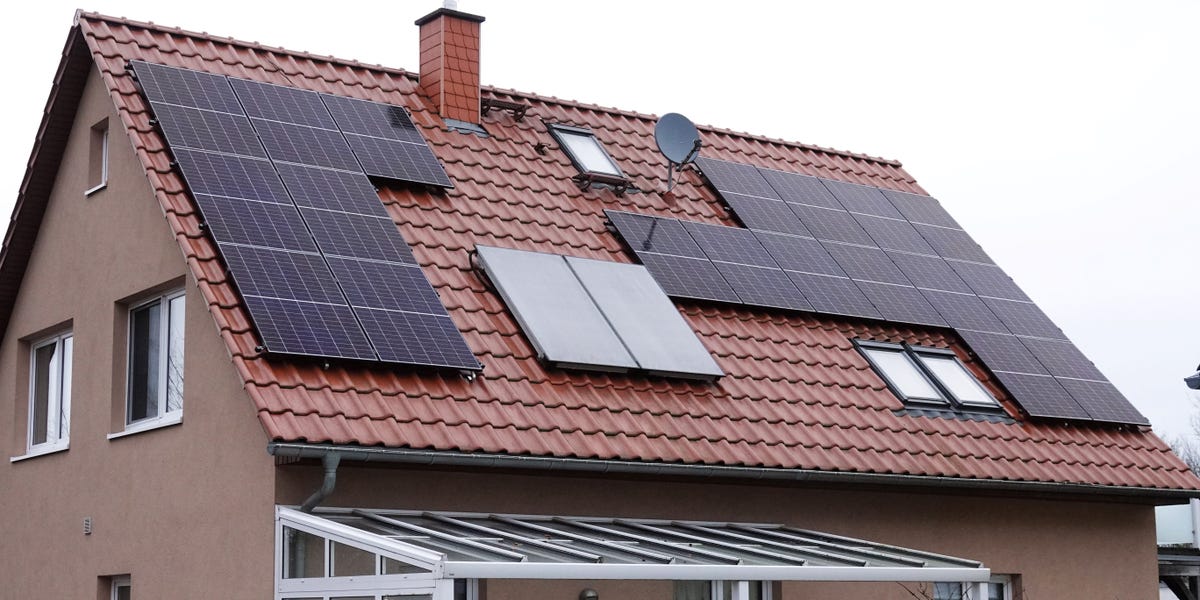China’s manufacturers are pumping out so many solar panels that the resulting global glut has caused prices to tank.
Solar panels — 80% of which are made in China — are so cheap that they are now being used to line garden fences in Germany and the Netherlands, the Financial Times reported on Tuesday.
Solar panels are typically installed on rooftops, where they can capture the most sunlight — but there’s so much excess supply that people in these two countries are now putting them on fences. This also saves on pricey labor and scaffolding costs required for roof installations, per the FT.
Fences covered in solar panels are also starting to take off in the UK, North America, and Australia.
“Why put up a fence when you can just put up a load of solar panels, even if they’re not aligned exactly to the sun?” Martin Brough, the head of climate research at BNP Paribas Exane, told the FT.
Solar panel supply globally is forecast to reach 1,100 gigawatts by the end of this year — three times more than demand, the International Energy Agency wrote in a report released in January.
Prices on the spot market have already fallen by half in 2023 and are likely to extend decline by another 40% by 2028, the agency added.
China’s hold on the solar panel market is now in a state of oversupply, which means manufacturers elsewhere — such as the US and Europe — are unable to compete effectively.
The oversupply of cheap Chinese solar panels is on US Treasury Secretary Janet Yellen’s radar as she heads to China on Wednesday for meetings with top Chinese officials. The visit, slated to end Tuesday, is her second trip to China in the past 12 months.
“During her engagements in China, Secretary Yellen will advocate for American workers and businesses to ensure they are treated fairly, including by pressing Chinese counterparts on unfair trade practices and underscoring the global economic consequences of Chinese industrial overcapacity,” the Treasury said in a press release on Tuesday announcing Yellen’s visit.
Last week, Yellen said at a Suniva solar cell plant in Georgia that she was “concerned about global spillovers from the excess capacity that we are seeing in China” that have now hit new energy industries like solar, electric vehicles, and lithium-ion batteries.
Beijing is championing what it calls the “new three” industries of solar, electric vehicles, and lithium-ion batteries to drive its economy. China is struggling to pivot from its reliance on the real-estate industry, which is now mired in a debt crisis.
“China’s overcapacity distorts global prices and production patterns and hurts American firms and workers, as well as firms and workers around the world,” Yellen said, adding that she will raise the issue of overcapacity in her next trip to China.
“I will convey my belief that excess capacity poses risks not only to American workers and firms and to the global economy, but also to productivity and growth in the Chinese economy,” Yellen added.
Chinese manufacturers are feeling the heat from solar panel overcapacity, too.
Last month, Longi Green Energy Technology, the world’s largest solar cell manufacturer, announced it was laying off thousands of workers amid overcapacity and low prices.




